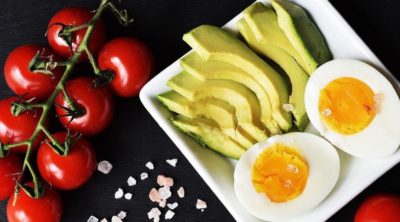Pregnancy brings a whole new world of choices to light when you learn you’re having a little one. One of the most difficult choices is deciding what is safe to put into your body.
Everything you consume has the ability to affect your baby postively or negatively. So, if you’re wondering about the safety of following a keto diet while pregnant, the information below will help you make an educated decision.
Keto Diet Guidelines
The keto diet is a low-carb, high-fat plan that is designed to put your body into ketosis – a state in which your body becomes highly efficient at burning fat for energy since there are fewer carbs in the body. It takes about three or four days for the body to enter ketosis.
Keto diets have been shown to drastically reduce blood sugar and insulin levels. Additionally, it aids in weight loss (primarily due to the reduction of carb intakes) and decreases risk factors for other types of diseases. It may surprise you that the keto diet was actually designed for people who suffer from seizures. Who knew?
Moving on, this plan has clear guidelines on what you can and cannot eat. We list a few of each below.
Keto Approved Foods
- Seafood and lean meats
- Non-starchy veggies (broccoli, spinach, zucchini, cauliflower, etc.)
- Cheese and eggs
- Avocados
- Nuts and seeds
- Berries
- Dark chocolate
Non-Approved Keto Foods
- Processed foods
- Artificial sweeteners and added sugars
- Sodas
- Non-berry fruit
- Grains and legumes
- Snack foods
The good news is that you won’t go hungry on this diet. Many of the approved foods are packed with protein which should keep your belly satisfied. And because of the elimination of foods that have been shown to irritate the gut, you should also see improved digestion.
So, Is a Keto Diet While Pregnant Safe?
We will start by saying that research regarding the keto diet while pregnant is scarce. As you can imagine, you don’t want to risk harming a pregnant mother or unborn baby in the name of research.
Dr. G. Thomas Ruiz, OB-GYN, Lead of Obstetrics at Memorial Care Orange Coast in Fountain Valley, California, weighed in on the subject on What to Expect. He says, “Glucose, from carbohydrates, is the primary energy source for baby’s growth and development and not having enough glucose can cause serious problems. The keto diet is simply not safe for pregnant women.”
Nutritional deficiencies and developmental delays are other areas of concern. Because the keto plan requires you to eliminate most fruits, beans and certain vegetables, specific micronutrients essential to your baby’s growth could be lacking.
This is not to say that simply reducing carbs while pregnant is a bad idea. Eliminating the junky carbs like prepackaged snacky items or processed foods is totally fine, obviously. That’s a great idea even when you’re not pregnant!
But the biggest takeaway is that pregnancy is not the time to decide to try anything extreme. You don’t know how your body will handle it since you’re in a much more delicate state. And, of course, there’s no way to know how the baby will handle such a change.
In closing, the keto diet may be completely fine in general, but pregnancies come with their own set of risks. Trying a keto diet while pregnant isn’t the best idea. Instead, use the time to go ahead and eliminate the common foods and drinks you know won’t serve your body or your baby well. A healthy pregnancy is what’s most important!


